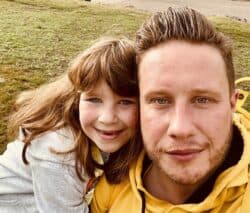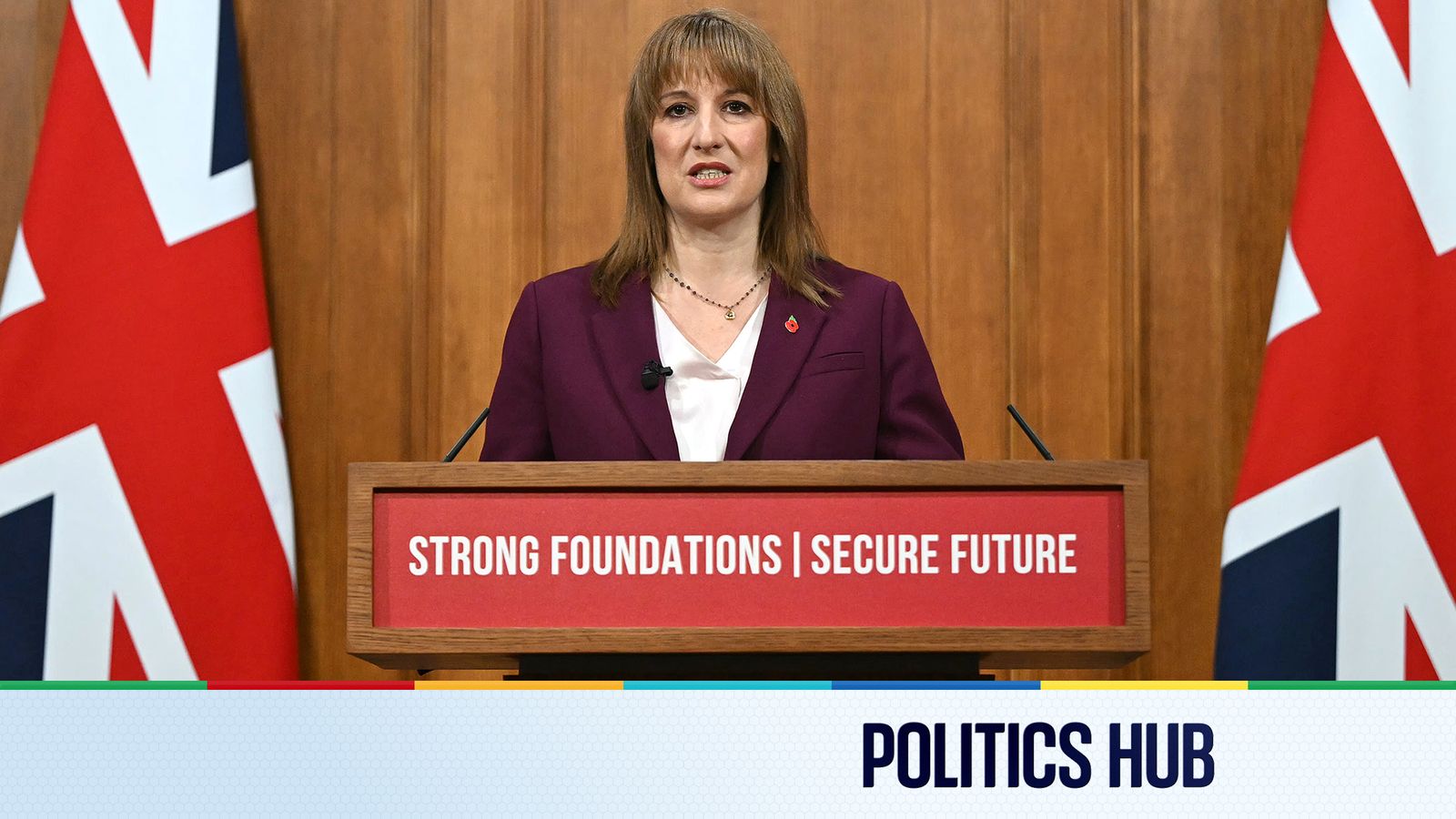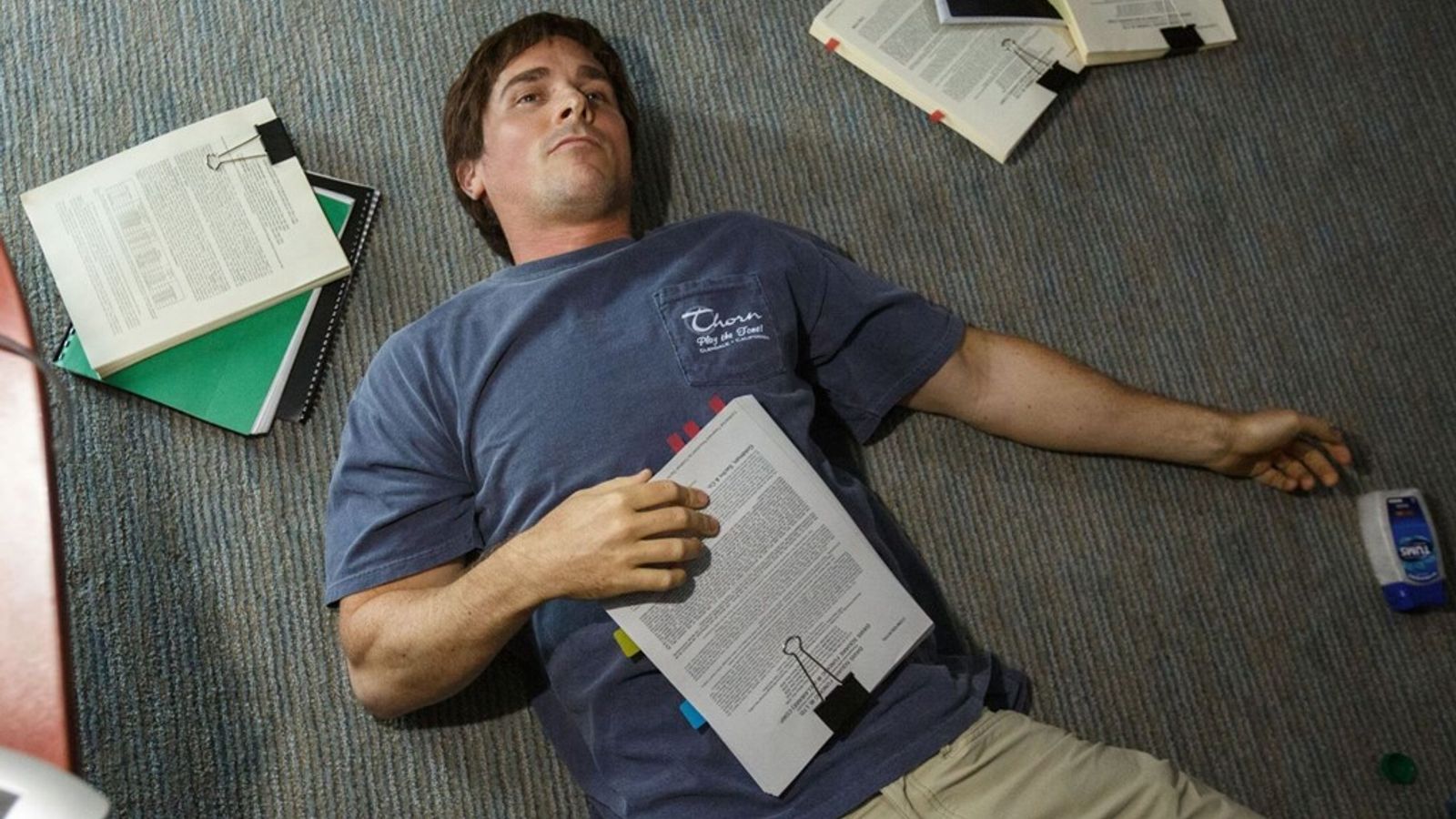I wasn’t ever really that great at saving (Picture: Mark Waddington)
As I looked down at my seven-year-old daughter at Disneyland last year, her beaming face shone back up at me.
She’d always wanted to go, but the last couple of years have been tough financially so I couldn’t make it work.
As a single dad working as an actor and magician, the pandemic absolutely killed my career so I couldn’t even afford food on the table, let alone a trip down Splash Mountain.
It’s through microsaving – the process of saving small amounts of money incrementally – that I could afford the trip.
In early 2019, my work as a magician was the busiest it’s ever been.
I’ve been doing magic since I was 11 years old, so my speciality is close-up tricks – think cards and props like wine glasses and little magic boxes.
I was often booked up to 18 months in advance for gigs at weddings or corporate events, as well as travelling across Europe doing magic shows when I could too.
At the peak of this earning – towards the upper end of five figures – that’s when I decided to try to take control of my finances. I wasn’t ever really that great at saving, but because I didn’t have a traditional nine to five job, I felt like I needed to really pay attention to what was going on in my bank account.
I worked out recently that I’ve saved around £2,000 since starting round-ups in 2019 (Picture: Mark Waddington)
That’s when I came across Monzo, but specifically a plug-in called If This, Then That (IFTTT). It’s an easy-to-use money management feature that makes saving little and often easy.
I came across a tool you could use called round-ups. Essentially, if I buy something for £1.60, the banking app will round that number up to £2 and then automatically put aside 40p in a savings pot. For me, I quickly figured out that it works out to be around £50 a month.
Soon enough, I realised I could use those savings to take my daughter out for tea, play crazy golf, the cinema or to treat ourselves to whatever we wanted. It felt like these savings had just come out of nowhere.
But when the pandemic hit in March 2020, everything changed and all my magician bookings got cancelled.
I had saved some money by that point but I’ll never forget looking at the outgoings in my bank account statement and wondering how I was going to make it all last without anything on the horizon.
The money put aside builds up every day (Picture: Monzo)
The savings I had already made came in handy for things like upcoming bills, but I couldn’t survive on that alone.
I ended up taking a job delivering pizzas. For around six months, I’d drop my little girl off with my parents’ and off I’d go. It was tough, but actually, being able to interact with other adults during this time saved my mental health.
A few months later, I got a part-time acting gig at a local tourist attraction. Within a few months, they made the role full-time so now I both write and act in shows, which I absolutely love.
When I eventually looked at the pot again, I realised I had a couple of hundred pounds in there and I was so shocked (Picture: Monzo)
The job is stable, but I’m not earning anywhere near like what I was at the height of my magician career a few years ago – especially now with the cost-of-living crisis coming into play.
For me, the rise in fuel costs affects me the most because I travel around the UK for jobs. If I’ve quoted a gig a certain amount for fuel a few months earlier, I’m finding inflation means I’m underquoting invoices by the time the job comes up.
Thankfully, I still have my full-time role at the local tourist attraction, but I’m finding I’m a bit more astute when it comes to the shops now – looking at the own-brands on the lower shelves.
After years of struggling financially, being able to do this for her felt so amazing (Picture: Mark Waddington)
That’s when continuing with the microsaving initiatives has come in handy. I worked out recently that I’ve saved around £2,000 since starting round-ups in 2019.
Then earlier this year, I noticed a thing called the 1p challenge, where you could set it up to automatically put away 1p on the first day, then 2p on the second, 3p on the third, etc. So if you did it for just two days, you’d have 3p saved (1p on the first day + 2p on the second) or three days would be 6p saved in total.
The money put aside builds up every day, so that – if you started on 1 January – on 31 December, you’re moving £3.65 into your savings. All that squirrelling means you have £667.95 in total in a savings pot for the whole year.
Sure enough, the small incremental savings started coming out of my bank account, but I didn’t even realise that was happening.
When I eventually looked at the pot again, I realised I had a couple of hundred pounds in there and I was so shocked. A few months later – when I had £518 in that pot – that’s when I realised I could afford to treat my daughter to that trip to Disneyland.
After years of struggling financially, being able to do this for her felt so amazing.
More: News
Her gorgeous smiling face made it all worth it. That whole day, we felt like two kids just having fun without a care in the world.
In fact, we had so much fun that, when it was my daughter’s birthday recently on 16 December, guess what I got her again?
We’ll see you again real soon, Mickey.
As told to James Besanvalle
Do you have a story you’d like to share? Get in touch by emailing [email protected].
Share your views in the comments below.
MORE : I saved £20,000 by age 21 – and it only took me three years
MORE : This is how to make the most of your money in 2023
MORE : Mum saved extra penny a day to save over £650 for Christmas
If I buy something for £1.60, I’ll round that number up to £2 and then automatically put aside 40p in a savings pot.





